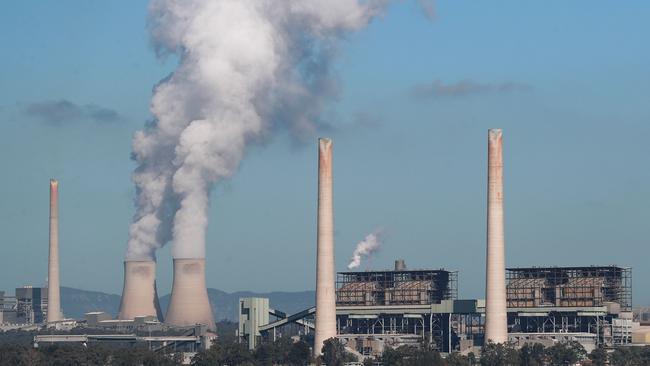
Peter Dutton has now made sure of that.
The injection of nuclear into the debate as a serious baseload option for Australia has ensured yet again that voters are forced to choose between two divergent alternatives.
The ideological ground has shifted. Climate change is no longer the principal issue. The battle now is on which mix of technology gets us there.
But Labor and the Coalition have perhaps never been further apart on this question than now.
The pressing issue is that the exit of coal is imminent. The plan is to retire 90 per cent of it within 10 years. What replaces it in the meantime is the issue.
The government may well argue that the Coalition’s nuclear option is fantasy. There is no doubt it’s ambitious. But Labor’s renewables and battery project is equally hanging on a wing and a prayer if the recent past investment schedule trajectory becomes the future.
Lights are literally going to start going out by 2035 unless Canberra gets this right and the exit plan for coal is managed properly.
Coal plants have got to shut and have to be replaced. And they have to be replaced quickly. This is an issue that has cost both sides elections.
Labor has suffered the most. It lost 2013 on the carbon tax broken promise and then again in 2019, Labor scored an own goal over Adani when the Labor-aligned outfit GetUp! campaigned against Bill Shorten over Adani.
Scott Morrison was assisted out of office by the Climate 200 team that helped the teal independents get elected.
Now Albanese and Dutton are locked into a continuation of the energy wars ahead of the 2025 election.
The outcome of this debate is in no way assured.
Dutton’s nuclear ambitions are easily dismissed. But Albanese’s renewables-only approach is equally fragile.
Forget the politics and follow the money.
The Investor Group on Climate Change is unashamedly pro-renewable/battery storage. Yet its own assessment is that Labor will not get there unless it radically moves the dial.
Investor concern is that while the government has plenty of projects to announce, many of which are hotly contested at a local level through a lack of community engagement, there is no overarching economy-wide plan on how to get to net zero.
Unsurprisingly, it warns not only of a flight of capital from Australian investors but a collar on capital flowing in.
The window is rapidly closing. If the Coalition fails at the next election, the nuclear debate will be put back at least another decade.
It won’t be dead necessarily, considering by 2045 we will be talking again about what is going to replace the wind farms that have a working life of only 30 years.
But nuclear won’t be a solution to the 2035 crunch point.
And on the current mathematics, the Albanese government is also a long way from getting there.




The next election will be the seventh in a row where climate change and energy policy stands to be a significant if not deciding factor.